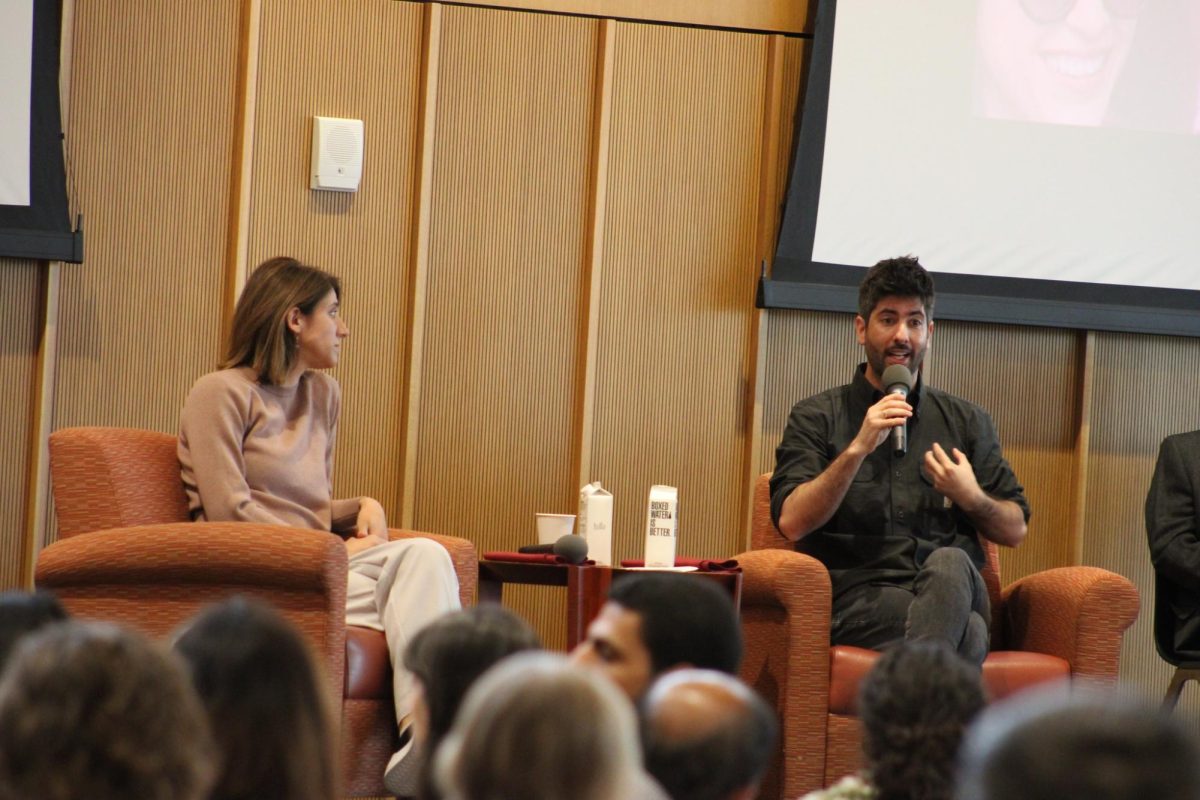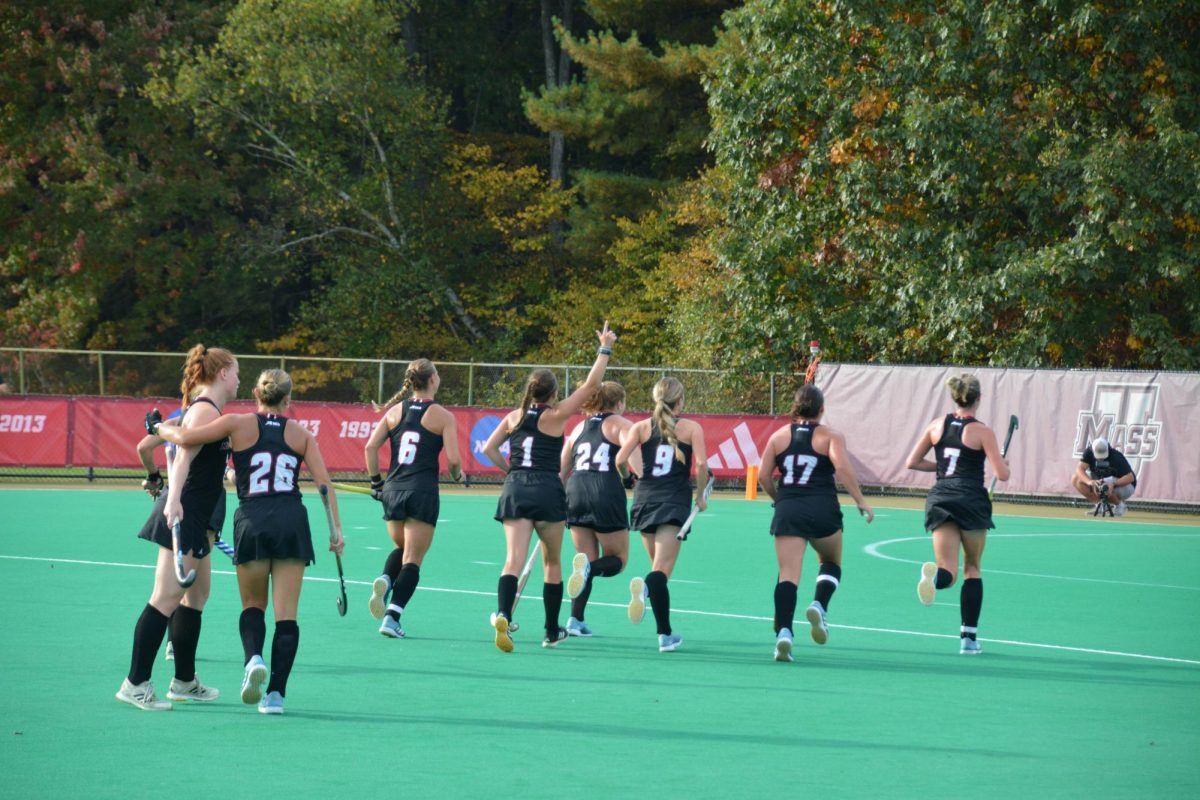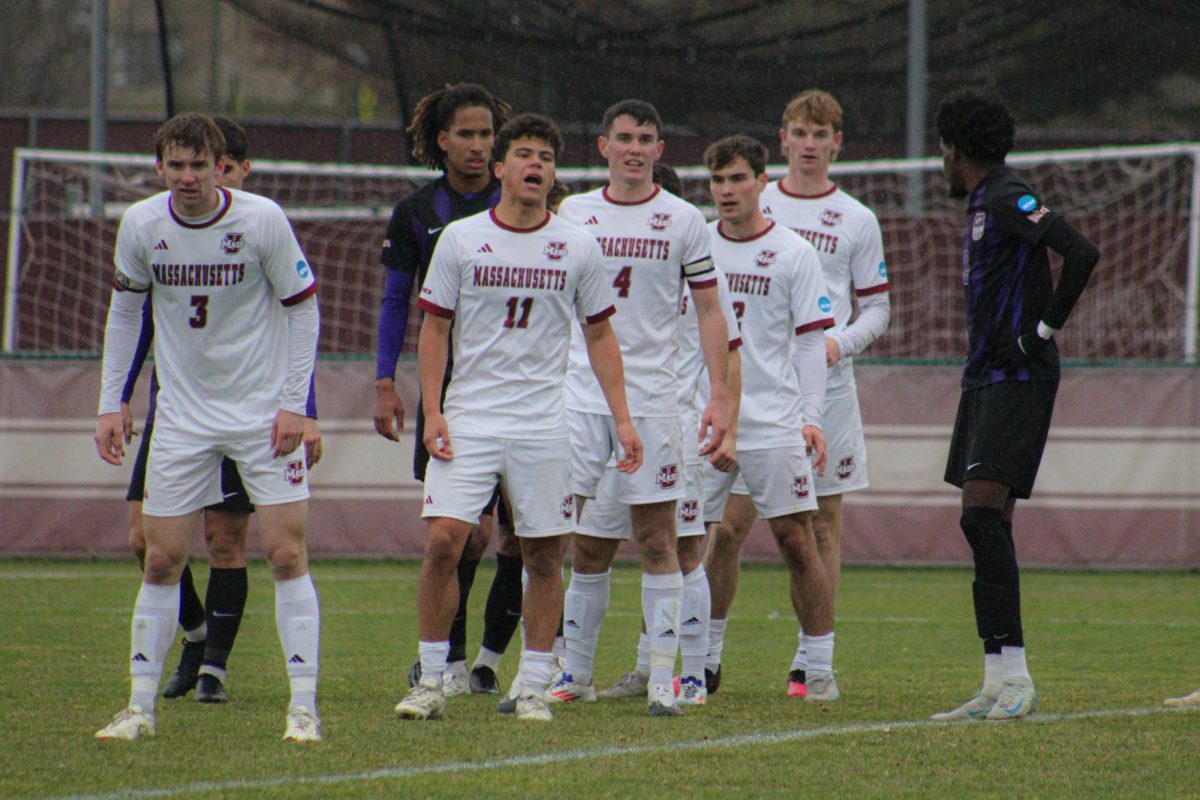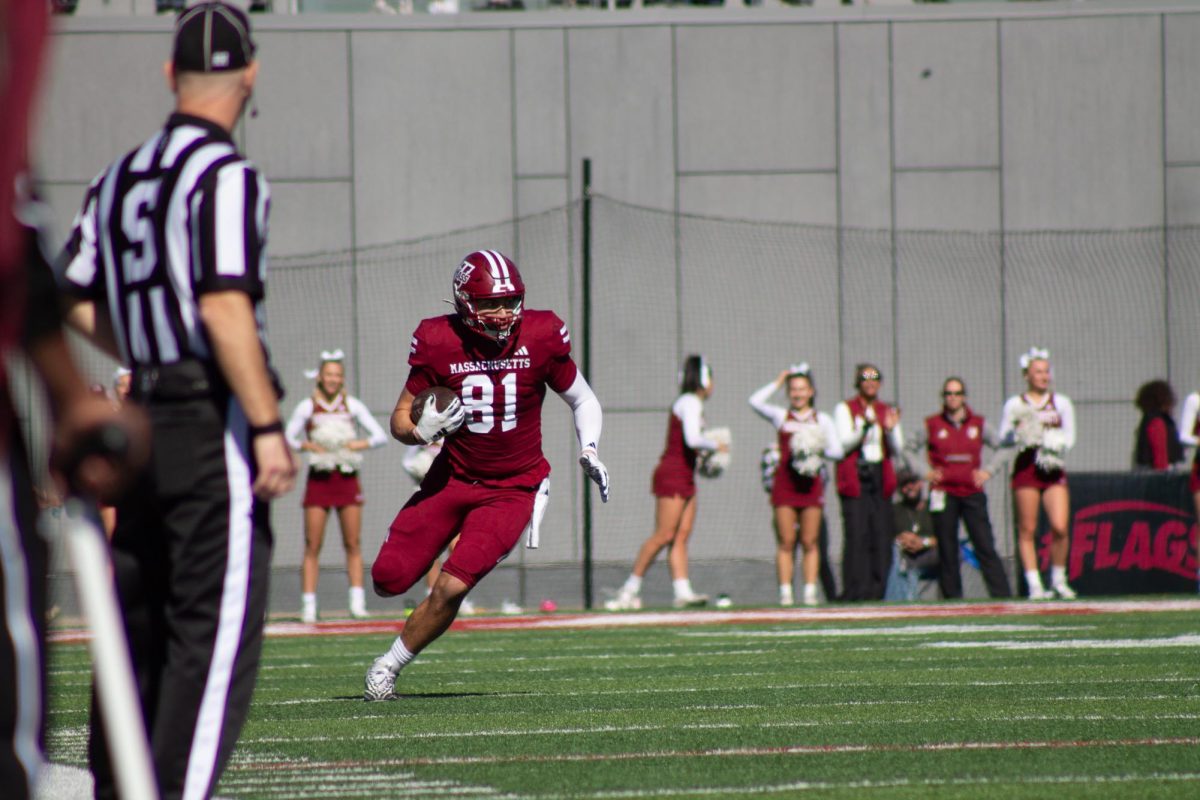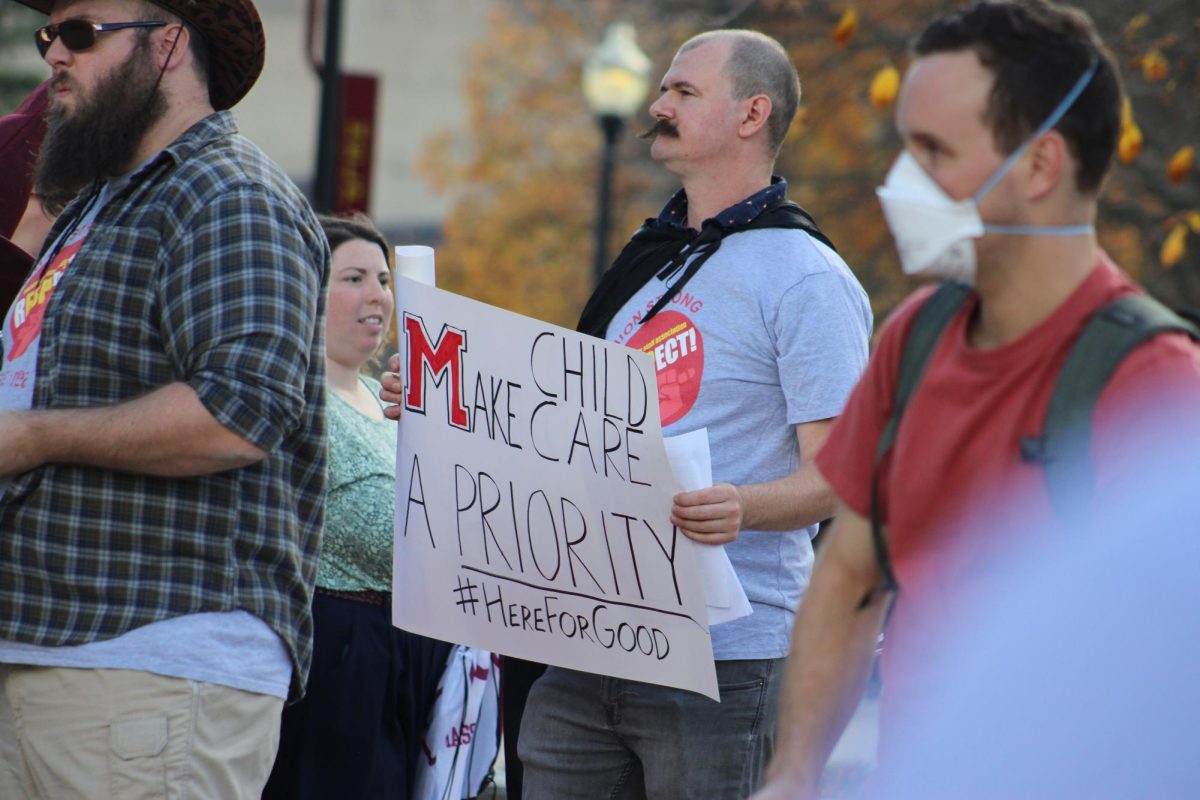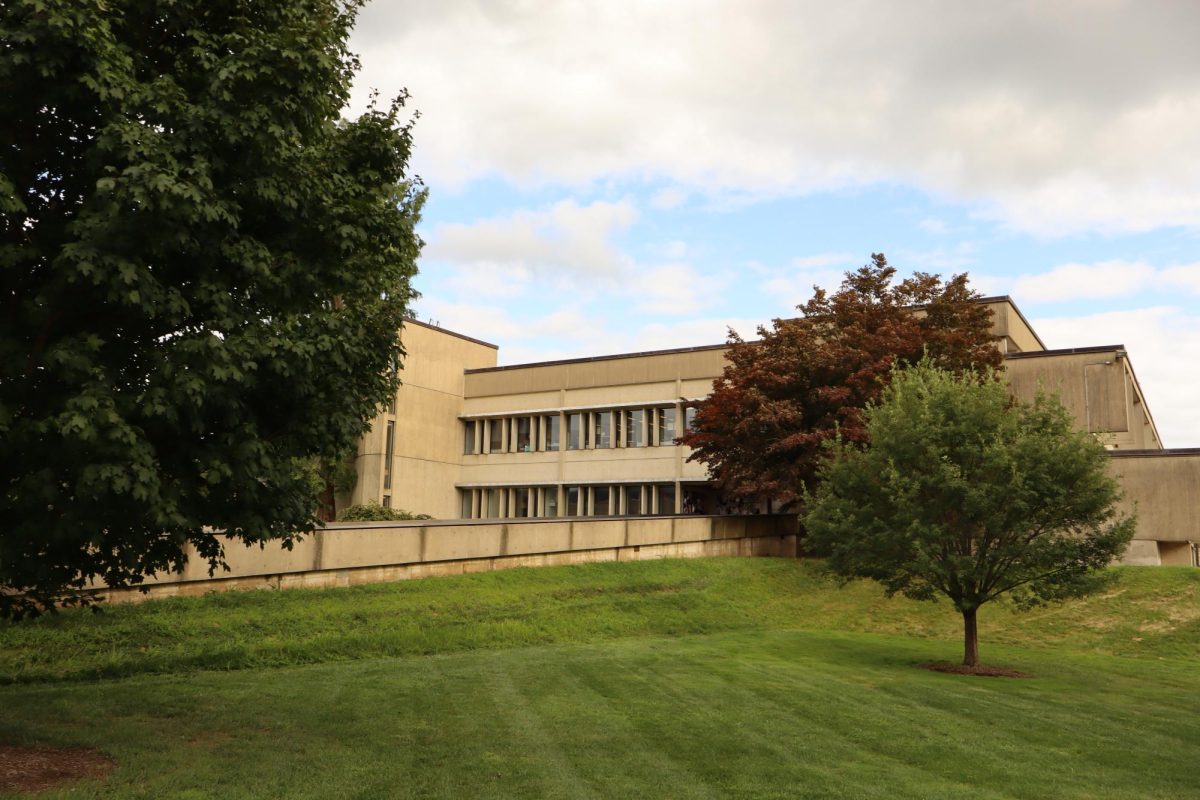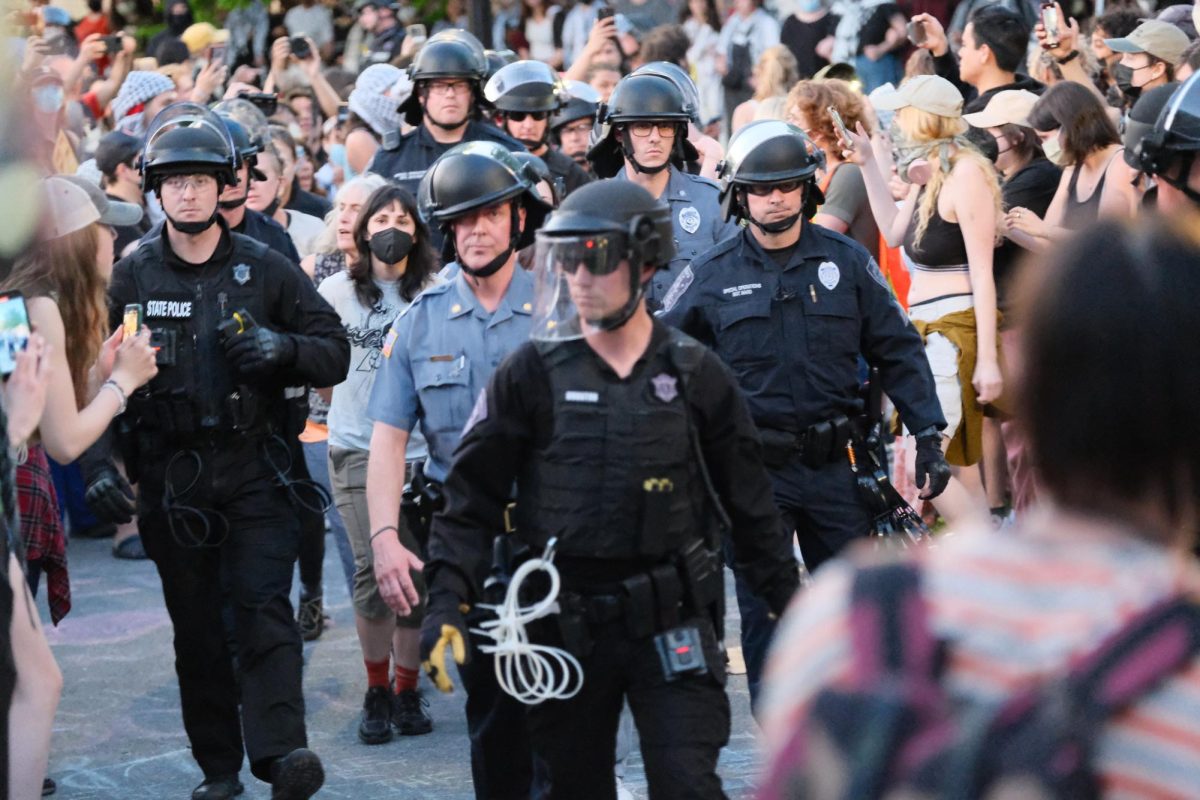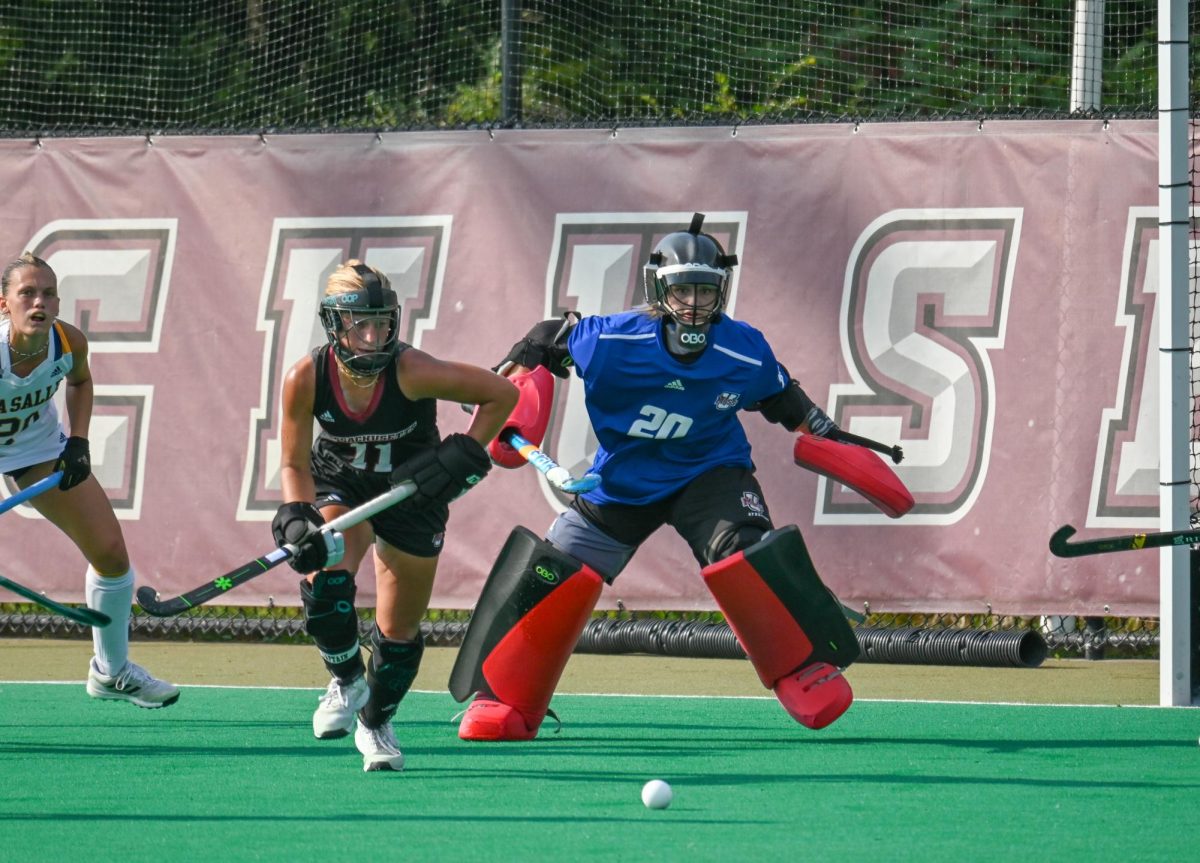On March 6, Sally Abed and Alon-Lee Green, leaders of Standing Together, held a presentation and open discussion, moderated by David Mednicoff regarding the ongoing conflict between Israel and Gaza.
Standing Together is a grassroots organization based in Israel that has accumulated global attention in its efforts to mobilize against the Israeli occupation of the West Bank along with the current war in Gaza. The organization, utilizing the phrase “Where there is struggle, there is hope,” addresses the vehicle of fear and racism that Israel’s political leaders weaponize, further dividing citizens on the ongoing conflict.
According to their website, the organization finds room for hope, focusing on concrete initiatives relating to workers’ unions, anti-occupation campaigns, environmental movements and more. Their goal is to unite people, inspire them to take action and turn their solidarity into a political force.
“[The] first lesson learned was that it’s not enough to mobilize and react to reality,” Alon-Lee Green said when describing the lessons needed to be learned to begin the organization.
“We need to organize. We need to have a vessel of building power that can move from one moment to the other, pile up the energy and take the energy instead of actually letting go. The second lesson was more of a political one …that people demand social justice,” Green said.
“[The word] ‘people’ was used, not in the context of the Jewish people, nor in the context of the Palestinian people, but actually in the context of the people living [in Israel] that [could] imagine something together.”
University of Massachusetts Chancellor Javier Reyes introduced the presentation by acknowledging the curiosity deemed necessary for the UMass community. “We’re a champion of questions,” he said, “a place for people to learn, explore and create knowledge.” He continued by describing the CDD (Community, Democracy and Dialogue), which facilitated the speakers of Standing Together, as one that “provide[s] opportunities for our community to hear the first points of views [and] exchange ideas… at a time when the world is so polarized.”
Reyes stressed a critical time where “healthy and productive conversations” remain a key component to UMass’s commitment in “creating ongoing, sustained efforts that provide ways to support inclusion and diversity.” He further noted how these beliefs supported UMass’ “democratic concepts of respect and compromise.”
Sally Abed, a Palestinian citizen of Israel and elected national leader of Standing Together, has grown in prominence in recent years as a strong progressive Palestinian voice in Israel, calling for a new political protagonist in the face of struggle.
Abed is the co-host of a new podcast, Groundwork, a mini-series that reveals the story of Palestinians and Jews who refuse to accept the status-quo and work together for change. Despite the dangers and struggles that she may face, Abed continues to fight for her beliefs and use her voice to push for social and political change.
“I feel very privileged to be here and do this with you,” Abed said. “And I feel very privileged to have the ability to assume the responsibility of Palestinians within Israel after the political vote within Israeli society for Palestinian freedom and for peace.”
Green is an Israeli founding member of Standing Together and the national co-director. He was an organizer in Israel’s first trade union of waiters and a prominent leader of Israel’s social protest movement where he convened some of its largest rallies. His political career began working for the Knesset, the Israeli Parliament, as a political advisor and was involved in the legislative process where he aided in building citizens’ campaigns.
As his student career progressed, he began to work in a coffee shop, a large chain in Israel that was owned by Americans, where he formed the first union of the dining workers industry and the first union of young workers in Israel.
“It got me fired, really quickly,” he said, yet he stressed the union’s efforts to persevere, which eventually led to a six-week strike to victory.
“I think that was the first moment in my life that I felt that maybe I do have some control. Maybe I do have some control over my reality, control over the things that are feeling unfair,” Green said.
This self-empowerment parallels the mobility that may be crafted in combating political entities such as the Netanyahu administration. “We need to be empowered within those societies in order to convince them to build the political capital to change this reality,” Green added.
As Standing Together attempts to bring people together, Abed and Green understand how their lives and other organization members are put at a high risk for negative political and social reactions, and how the narratives opposing perspectives could influence their fight for justice. That does not stop them from trying to fight for their beliefs.
“The vision of something that is not an internal war is not even presented to the Israeli public by any political party,” Abed said. “And I’m not saying this to scare [the audience]. I’m saying this for you [all] to understand what kind of reality and what kind of public and political narrative we’re dealing with…. Our main goal was to really be as loud as possible with the alternative to put it on the menu.”
As the discussion continued, Abed and Green continually made sure that the audience members understood that while each had their own personal opinions on the conflict at hand, there were several points of common interest including Green’s statement that “the very first step right now has to be a ceasefire agreement that will stop the killing and the destruction in Gaza.”
Clarifications of ideas, facts and opinions trended through the discussion, oftentimes bringing many cheers from the audience. A specific instance was when Abed spoke on how “Jewish safety and Jewish existence on the land is necessarily dependent on Palestinian freedom.”
Kalina Kornacki [email protected] and Alexandra Protter [email protected].

